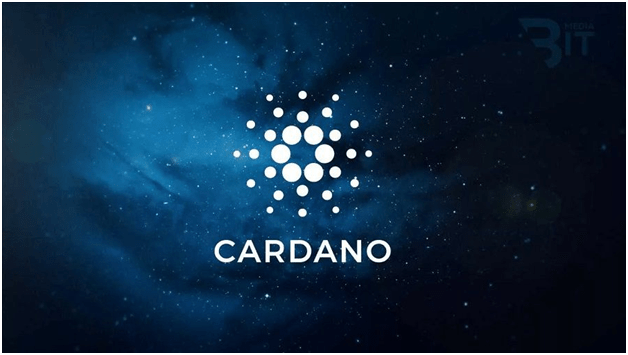Blockchain network Cardano (ADA) is preparing to launch its decentralized finance (DeFi) platform after completing a crucial mainnet upgrade to its blockchain. The recent rollout of Cardano’s Alonzo Hardfork brought smart contract functionality to the blockchain, giving developers on the platform their first crack at launching DeFi platforms, Decentralized applications, and non-fungible tokens.
Cardano’s ADA coin recently became the third-largest by market value, at $70 billion, although it is still dwarfed by Bitcoin, which has a market cap of $816 billion at writing this. A thorough look into Cardano Blockchain architecture will reveal the capabilities of the platform and why the DeFi launch is vital towards propelling Cardano towards becoming the main blockchain that provides smart contract features.
What is Cardano?
Cardano is an open-source and decentralized blockchain project that was created to facilitate peer-to-peer transactions. The Cardano blockchain’s architecture has two layers that facilitate smart contracts, enabling scalability and adaptability without compromising security.
The blockchain has been designed to use smart contract technology to its full potential. The smart contract support enables the platform to establish self-executing agreements that do not need professional oversight. With smart contracts, anyone on the platform can input a particular condition that has to be met and executed automatically without the need for a user’s constant involvement.
Cardano Blockchain Architecture
Cardano’s layered blockchain architecture has two main elements, namely Cardano Settlement Layer and Cardano Computational Layer. Cardano seeks to address network congestion, slow transactions, and high gas fees through these layers.
The CSL layer facilitates peer-to-peer transactions and acts like the blockchain’s balance ledger. Using a proof-of-stake consensus algorithm to generate new blocks and confirm transactions, the blockchain aims to improve Bitcoin’s proof-of-work protocol.
The CCL layer is where Cardano distinguishes itself. This layer powers the computational needs of the Cardano blockchain, enabling the execution of smart contracts. The CCL layer is operated separately from the settlement layer to afford flexibility if the need for changes arises. Its off-chain protocol offers greater data storage flexibility and an access model that enables users to create customized rules when validating transactions.
Cardano Smart Contract Upgrade
Alonzo is the code name for the recent major upgrade that has brought smart contract functionality to the Cardano network. Like all cryptos, ADA uses blockchain technology to record and track the exchange of information.
The event included three major upgrades to the Cardano ecosystem:
- Decentralized Finance (DeFi) applications: These are financial applications that do not rely on centralized financial intermediaries such as Brokerages, banks, or exchanges to offer traditional financial instruments. Instead, they use smart contracts on blockchains.
- Non-fungible tokens: a type of digital token that is unique and scarce. An NFT is essentially a unique proof of ownership of something, usually a digital asset. NFTs are digital versions of physical collector’s items, and no two NFTs are similar.
- Gaming: this functionality allows gamers to buy, own and sell in-game assets using NFTs.
More than 200 smartcontracts had already been executed by September 17 on the Cardano blockchain. Nonetheless, the smart contracts are time-locked and cannot be used by developers until they are released.
The founder of Cardano, Charles Hoskinson, stated that the upgrade was the most significant change in the history of the protocol. He added that the upgrade would allow the implementation of smart contracts, enabling a new sweep of decentralized finance applications and programmability. Cardano can now compete with Ethereum, a much larger network, earning the nickname “potential Ethereum killer.”
Launch Of DeFi Platform
The recent rollout of Cardano’s Alonzo hard fork that brought smart contract capability on the blockchain has given developers their first crack at launching DeFi platforms on the network. The altcoin’s commercial branch, EMURGO, is partnering with Shenzhen-based tech firm Blockchain 4A to create a new venture called Astarter, which seeks to improve the lives of the financially underprivileged.
Ken Kodama, the CEO of EMURGO, stated, “DeFi has been gaining traction very rapidly over the past year, as it can provide more accessible financial services to many people that have been underserved by the current financial system.”
“Astarter is a step towards leveraging Cardano’s research-driven blockchain as a platform to build important decentralized financial infrastructure that can be used by anyone.”
Astarter will release its initial decentralized exchange offering by December, followed by the integration of decentralized borrowing and lending.
The continued application of Cardano’s blockchain in real-life cases will add more value and utility to the platform. The DeFi development might see more investors flocking to the blockchain to add more utility to the same. The recent upgrade was well received by different players in the crypto industry, which is proven by the number of smart contracts that were executed immediately after the upgrade. It remains to be seen whether Cardano will live up to its new nickname, “potential Ethereum killer.”






